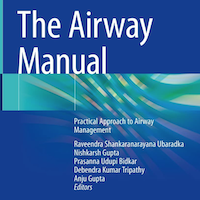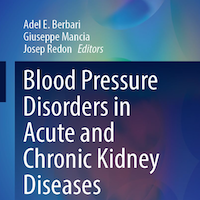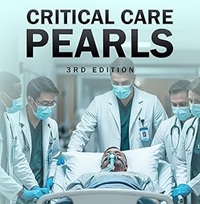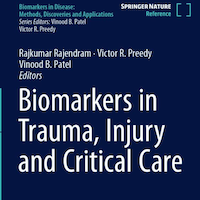Tag: diabetes
Corrected Serum Calcium Levels Predict 28-Day Death Risk in Sepsis
In a large cohort study utilizing data from 7,627 sepsis patients in the eICU Collaborative Research Database, researchers uncovered a clear U-shaped relationship between corrected serum calcium (sCa) levels and 28-day mortality.... read more
The Double Danger: Electrolyte Chaos in AKI Drives Worse Outcomes
Electrolyte imbalances and metabolic acidosis are highly prevalent complications in Acute Kidney Injury (AKI) and are directly linked to adverse patient outcomes, including death and a greater need for intensive care. The... read more
A Critical Curve: Unveiling the U-Shaped Relationship Between the TG/HDL Ratio and All-Cause Mortality in Obese Sepsis
This study analyzed 938 obese sepsis patients to investigate the prognostic significance of lipid metabolism abnormalities, focusing specifically on the Triglyceride-to-HDL (TG/HDL) ratio as a predictor of all-cause mortality. Key... read more
Glycemic Control Role in Inflammation Markers and Clinical Outcomes in Type 2 Diabetes Patients with Severe COVID-19
This study demonstrates that among hospitalized COVID-19 patients with type 2 diabetes mellitus, poor glycemic control (HbA1c ≥ 7%) correlates with increased systemic inflammation, greater disease severity, and worse clinical... read more
Continuous Glucose Monitoring-Based Insulin Titration Protocol for Type 2 Diabetes Patients
The continuous glucose monitoring (CGM)-based insulin titration protocol by Olsen et al has been successfully implemented for titrating basal, prandial, and correctional insulin in inpatients with type 2 diabetes in non-ICU... read more
Approach to Peripheral Neuropathy
Peripheral neuropathy is frequently encountered in the clinical setting by doctors of various specialties. Neuropathies can be approached based on the temporal profile, spatial pattern and pathology. There is a need for... read more
Inflammatory Markers and Severity in COVID-19 Patients with Clostridioides Difficile Co-Infection
The interplay of Severe Acute Respiratory Syndrome Coronavirus 2 (SARS-CoV-2) infection and Clostridioides difficile infection (CDI) poses a critical clinical challenge. The resultant inflammatory milieu and its impact... read more
Association Between SHR and Mortality in Patients with Heart Failure Complicated by Sepsis
This study suggests that stress hyperglycemia ratio (SHR) may be a valuable predictor of prognosis in patients with heart failure combined with sepsis. Both high and low SHR values are associated with poorer outcomes.... read more
Optimizing ICU Weaning: Globalizing Personalized Weaning Strategies
this study provides compelling evidence supporting the concept of individualized weaning in the ICU. By tailoring spontaneous breathing trial (SBT) methods to match specific patient conditions, it represents an essential... read more
Relationship between Concentrations of Oxygen and Levels of Oxidative Stress in Patients Receiving Oxygen Therapy for Severe COVID-19 Pneumonia
We evaluated the potential of high-flow oxygen therapy to increase oxidative stress and inflammation in COVID-19 patients. Our observation of decreased MDA levels when transitioning hypertensive patients from high-flow to... read more
Comorbid Burden at ICU Admission in COVID-19 vs. Sepsis and ARDS
The burden of age and comorbidity is more prominent in ICU-admission for sepsis and acute respiratory distress syndrome (ARDS) than for COVID-19. This is likely to be caused by a combination of COVID-19 affecting the relatively... read more
Epidemiology of Surgery Associated Acute Kidney Injury (EPIS-AKI)
In a comprehensive multinational study, approximately one in five patients develop PO-AKI after major surgery. Increasing severity of PO-AKI is associated with a progressive increase in adverse outcomes. Our findings indicate... read more
The impact of diabetes mellitus on morbidity and mortality in patients with COVID-19
During the COVID-19 pandemic, healthcare delivery was affected in various ways. For example, acute and chronic cardiovascular diseases (CVDs) and events were less frequently observed in hospitals, both because public health... read more
Association Between Oxygen Desaturation Index and Cardiovascular Disease in Non-Sleepy SDB Subtype
In the Chinese community-dwelling population, non-sleepy sleep-disordered breathing (SDB) was highly prevalent. Oxygen desaturation index (ODI), an easily extracted indicator from a type IV sleep monitor, most strongly reflected... read more
Risks and Burdens of Incident Diabetes in Long COVID
In the post-acute phase, we report increased risks and 12-month burdens of incident diabetes and antihyperglycaemic use in people with COVID-19 compared with a contemporary control group of people who were enrolled during... read more
Clinical Profile and Recovery Pattern of Dysphagia in COVID-19 Patients
COVID-19 considerably impacted swallowing function in the current study. Although many patients recovered within an acceptable timeframe, some experienced persistent severe dysphagia and a protracted recovery with dependence... read more
A Cold Case of Superior Vena Cava Syndrome
A 61-year-old woman with hypertension, diabetes mellitus, hyperlipidemia, coronary artery disease, congestive heart failure (s/p PPM/ICD), pulmonary embolism (on warfarin), end-stage renal disease (on HD via right internal... read more
Saline vs. Balanced Crystalloid in Patients with Diabetic Ketoacidosis
In patients with diabetic ketoacidosis (DKA), the use of saline may be associated with longer time to DKA resolution, higher post-resuscitation serum chloride levels, lower post-resuscitation serum bicarbonate levels, and... read more
Early Remdesivir to Prevent Progression to Severe COVID-19 in Outpatients
Among nonhospitalized patients who were at high risk for Covid-19 progression, a 3-day course of remdesivir had an acceptable safety profile and resulted in an 87% lower risk of hospitalization or death than placebo. A... read more
Chlorthalidone Improves Blood Pressure Control in Advanced Chronic Kidney Disease with Hypertension
Among patients with advanced chronic kidney disease and poorly controlled hypertension, chlorthalidone therapy improved blood-pressure control at 12 weeks as compared with placebo. A total of 160 patients underwent randomization,... read more
UK 28-Day Mortality Trends of COVID-19 Patients
There was a marked deterioration in outcomes for patients admitted to critical care at the peak of the second wave of coronavirus disease 2019 in United Kingdom (December 2020–January 2021), compared with the post-first-wave... read more
The Obesity Paradox in Critically Ill Patients
A causal inference approach that is robust to residual confounding bias due to model misspecification and selection bias due to missing (at random) data mitigates the obesity paradox observed in critically ill patients, whereas... read more









